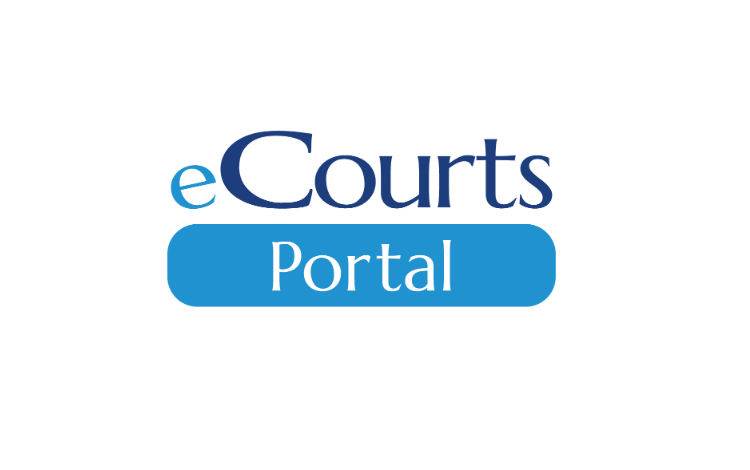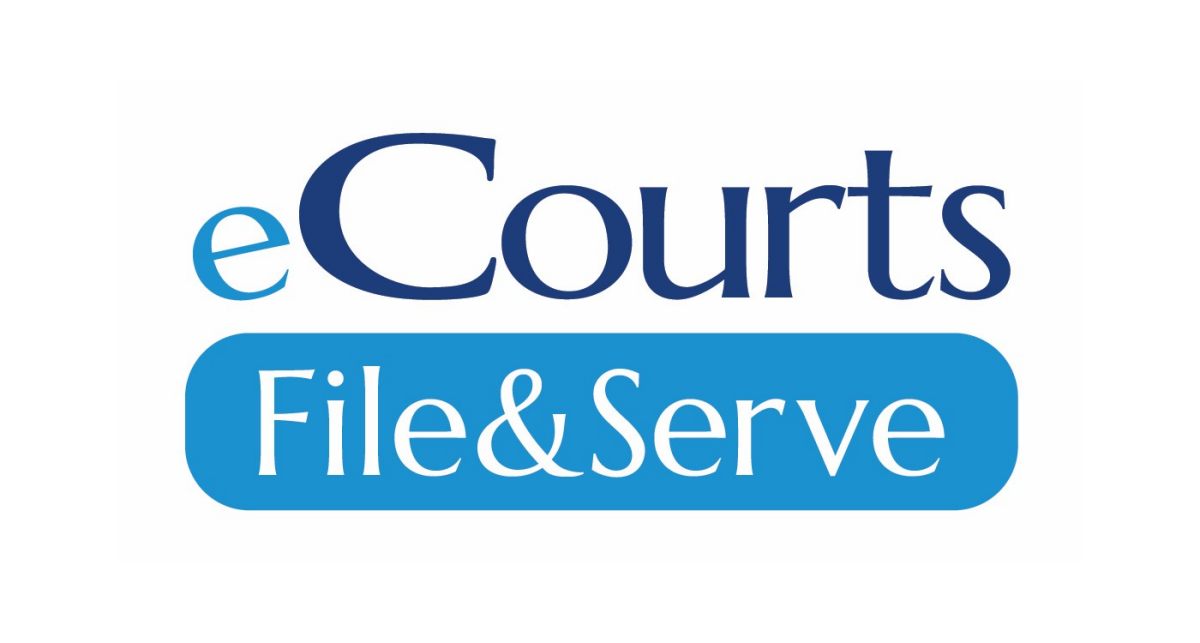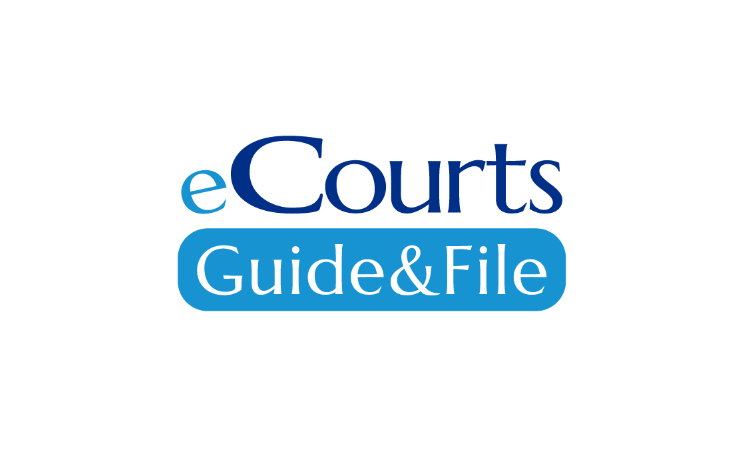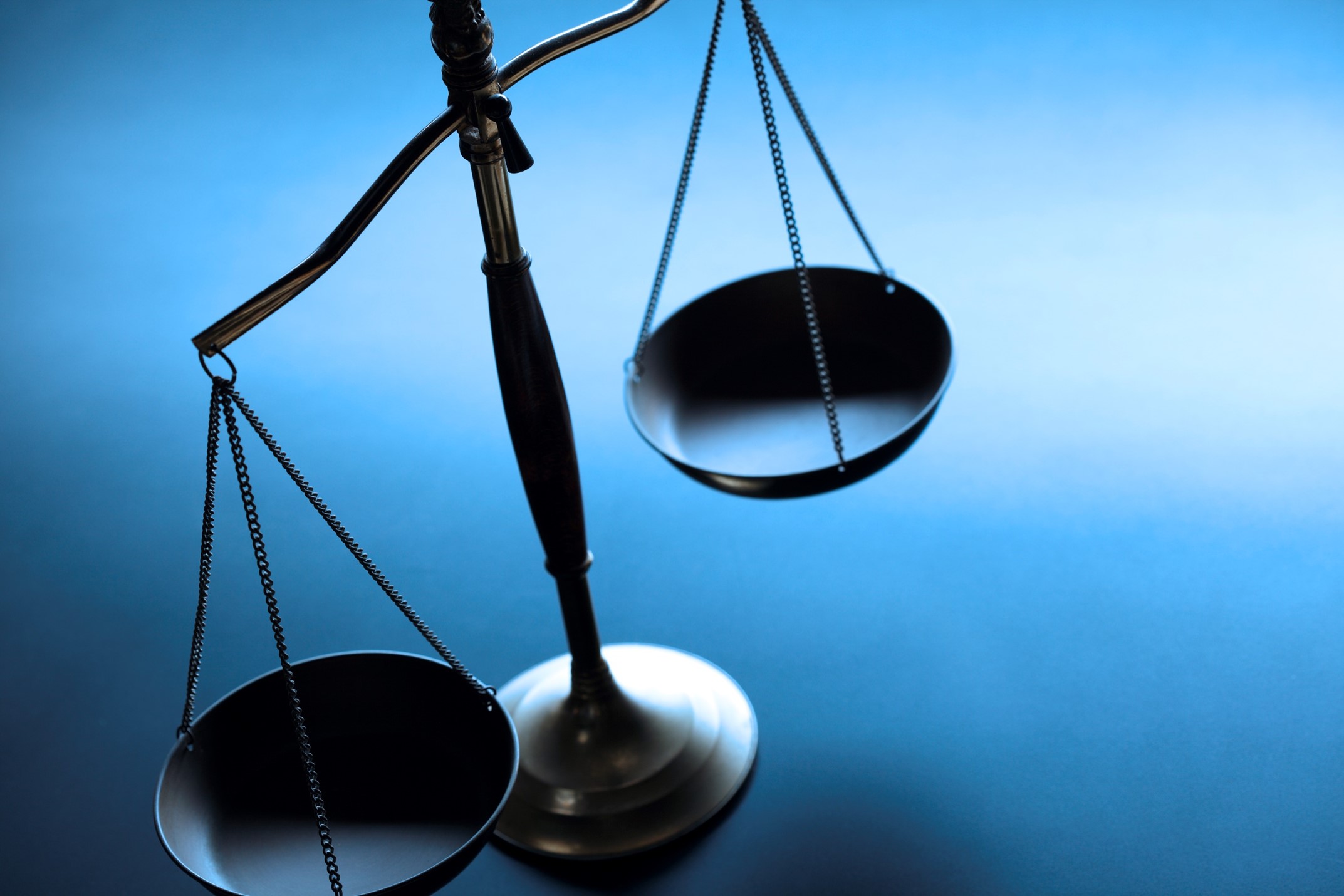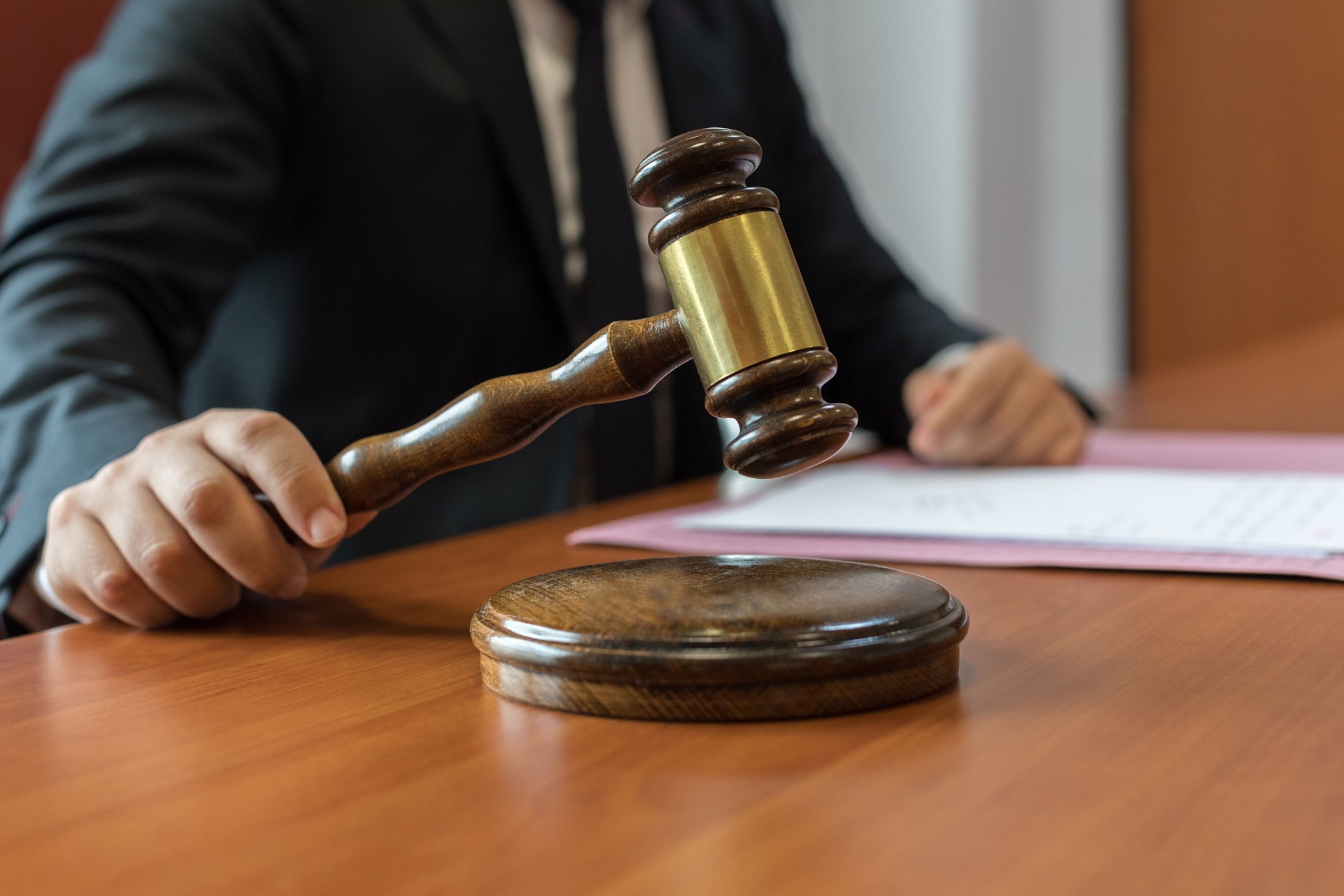EMERGENCY AND TIME SENSITIVE FILINGS
You may submit emergency and time sensitive filings using eFile & Serve at https://northcarolina-review.fileandserve.tylertech.cloud or in the Magistrate's Office, which is located at the Harnett County Sheriff's Department (behind the courthouse) 175 Bain Street, Lillington, NC 27546.
Popular Resources
View AllCriminal Court
Understanding the Criminal Court Process Criminal (n.) A person who has committed or been legally convicted of a crime. The American Heritage Dictionary. North Carolina has more than 400 … Read more
Civil Court
Understanding the Civil Court Process Civil law n. 1. The body of law dealing with the rights of private citizens in a particular state or nation as distinguished from criminal … Read more
Small Claims Court
Small claims court is part of the District Court Division. It handles civil cases where a plaintiff requests assignment to a magistrate and the amount in controversy is $10,000 or less. … Read more
Estates and Wills
Beginning Estate Administration DOCUMENTATION NEEDED TO BEGIN THE PROCESS OF OPENING A DECEDENT'S ESTATE INCLUDES: Original Last Will and … Read more
Criminal Record Check
Criminal records are a matter of public record and may be checked by name at the public terminal if for inquiry only - no charge. Upon the payment of the statutory … Read more
Harnett County Veterans Treatment Court
Zane Campbell, Veterans Court Director 301 West Cornelius Harnett Boulevard Lillington, NC 27546 (910) 814-4515 Gordon Harrington, Mentor Coordinator (910) 814-4623 Tony … Read more
Related Links
View AllFAQs
View AllBy Order of the Court entered on April 13, 2016.
Please review attached Order by the Court entered on April 2, 2015.
When your name is randomly drawn to take a numbered seat in the jury box at the start of a trial, the attorneys will ask you questions about yourself. If you know the parties to the case or any of the court officials, or if your answers to questions lead the attorneys or the judge to feel that you could not be objective in considering the evidence in this trial, you will dismissed with the Court's thanks.
When you report to the Courthouse, you will be shown an orientation video that explains what to expect as a juror. You will also be given additional information from the court staff. Then all jurors present will take an oath as jurors and be given a red juror badge to wear until they are released from jury duty by the judge. Once a trial begins, the judge will instruct you on your duties as a juror.
It is extremely rare for a jury to be "sequestered" or kept in a hotel during a trial. You should expect that you would be allowed to go home at the end of each court day.
In an emergency, you may be contacted through the Clerk of Superior Court's office at (910) 814-4620. The court staff will make certain that you get the message.
If you are seated for a trial, you must serve until the trial ends, which may be two days to several weeks. Most jurors only serve for one to five days.
You should dress comfortably, but not too casually. Dress for Court as if you were going to work or to church. It is NOT acceptable by the Court to wear halter-tops or tank tops, cut-off jeans, shorts, or shirts with offensive wording. Remember, you will be acting as part of the Court while serving as jurors, so dress appropriately. Also, you might want to wear layered clothing since courtroom temperatures may vary considerably, requiring the removal or addition of a sweater or jacket.
Bring a book, laptop computers (wireless access provided), needlework, cross-word puzzles, or other materials to occupy your time while waiting. These items are not allowed for use in the courtrooms. While efforts will be made by the Court to reduce delays in trial starts and to avoid long waiting periods for you, some waiting time should be anticipated while jurors are chosen to sit on a jury.
North Carolina law prohibits employers from firing or demoting an employee because they serve as a juror. However, the law does not require that the employee be paid in full while serving.
North Carolina law provides for the compensation of citizens who are called for jury service at the rate of $12.00 for the first day, $20 for the next 4 days and $40 for every day after those first 5 days. You will not be compensated if you appear and request a deferral or excusal. The Clerk of Superior Court will mail you a check for the appropriate amount.
There are no automatic exemptions from jury duty if you meet the qualifications as a juror. You may apply to the court to request deferral of your service to a more convenient date if serving at the original time would cause an unusual or difficult hardship. Jurors over 72 year of age may request an excusal if you have a medical reason that prevents your service. To make a request, complete the appropriate section on the jury summons and mail/deliver/fax it to the Harnett Co. Clerk of Superior Court’s office. Mailing address is: Jury Clerk, 301 W. Cornelius Harnett Blvd., Suite 100, Lillington, NC 27546 and fax number is (910) 814-4560.
All jurors must be citizens of North Carolina and residents of the county where they are summoned; be at least 18 years old; have not served as a juror during the previous two years; be physically and mentally competent and be able to understand English; and not be a convicted felon without restoration of citizenship. If you are ineligible for jury service, you must complete the request section of the summons and mail it to the Clerk of Superior Court’s office at 301 W. Cornelius Harnett Blvd., Suite 100 Lillington, NC 27546
Yes. A jury summons is an official court summons, and your failure to report as required may result in being fined $50 or held in contempt of court.
Every two years, a three person Jury Commission supervises the compilation of a master jury list of county residents who are registered voters, licensed drivers, or both. Persons selected for jury duty are selected at random from the master list through a computerized system.
The night before your service date, you should call the jury message line (910) 814-4606. You will be instructed as to a specific time and place to report or whether you need to report at all.
There are many types of civil cases. The more common cases are:
Domestic
Divorce, child support, custody and visitation, and division of the marital property.
Contracts
Disputes over an agreement usually for the payment of money for services or goods.
Personal injury
Action to recover damages (money) for injuries sustained due to someone else’s fault. (Last updated on 09/14/2001)
In general, there are three levels of the civil trial courts in which an action can be filed. However, there are exceptions to these rules, so seek the advice of an attorney before filing.
Small Claims: Actions for less than $5,000 and many landlord tenant disputes.
District Court: Actions for less than $10,000 and all domestic cases.
Superior Court: Actions for over $10,000.
Small Claims court is the same as the magistrate's office, usually located in the Courthouse. (Last updated on 08/01/07)
Court costs vary depending upon which division you file the action in. You can contact the Clerk of Superior Court's office in your county for the current cost of court. You may have to pay additional fees besides court costs. These include service fees that are paid to the sheriff. (Last updated on 09/14/2001)
Not necessarily. It depends upon the type of case, and even if you are entitled to a jury trial, you must still request one. (Last updated on 09/14/2001)
No. Only in criminal cases are you guaranteed a right to an attorney paid for by the state. In the civil courts, you must hire your own attorney. (Last updated on 09/14/2001)
If you do not know of an attorney in your area, you can contact the Lawyer Referral Service of the North Carolina Bar Association. The Lawyer Referral Service maintains a list of attorneys in your area who will provide an initial consultation at a reduced cost. Call: 800-662-7660.
If your income is limited, you may qualify for free legal services, provided by the legal services office in your area. Call (919) 828-4647. (Last updated on 09/14/2001)
Your attorney should advise you on what to expect in your particular case. Below are some guidelines that apply to most cases.
Plan to stay at least three hours. The courtroom will be crowded and it may be a while before the judge listens to your case.
Dress appropriately. If you dress inappropriately, you may be asked to leave the courtroom.
Find out in which courtroom your case will be heard before court starts. Your attorney may be able to help you with this. You can also call the Clerk of Court’s office in the county where your case is pending. Call prior to your court date, not the morning of court.
If you have any witnesses, make sure they know the date and time for court. Make sure that they also dress appropriately.
Bring a pen and paper to court with you. You may need to take notes about your case or write down court dates. It is your responsibility to know when to return to court if your case is continued (or postponed) until another date. (Last updated on 09/14/2001)
Arrive at the courthouse early enough to give yourself time to find your courtroom.
When court starts, listen for your name to be called. Your name may be mispronounced so listen closely. When your name is called say, “Present,” loudly and clearly. If your name is called and you do not answer, it is the same as not being there. If your name is not called, notify the person who is calling the names at the first recess or break since you may be in the wrong courtroom.
If you get to court late, stay in the courtroom until the next break or recess and let the baliff know that you are there. This does not mean that the judge will listen to your case. (Last updated on 09/14/2001)
If you are the plaintiff, your case may be dismissed.
If you are the defendant, the judge may enter a judgment against you even if you are not present or the judge may continue the case.
If you cannot be in court for some reason, you should immediately notify your attorney. If you do not have an attorney, you should file a motion to continue the case with the Clerk of Superior Court. (Last updated on 09/14/2001)
It depends upon the type of case you filed and what type of relief you asked for (i.e., divorce or money). (Last updated on 09/14/2001)
You may have the right to appeal the judge or jury’s decision. Most appeals will go to the appellate courts, which are the Court of Appeals and the Supreme Court. (Last updated on 09/14/2001)
There are several locations where North Carolina statutes and case law are maintained. The North Carolina Supreme Court Library in Raleigh maintains an extensive collection of state (including other states) and federal law, periodicals, and law reviews.
The North Carolina General Statutes can be also be found on-line at ncga.state.nc.us.
Most public libraries and university libraries have the North Carolina General Statutes. All of the law schools in North Carolina have law libraries, but should be contacted to determine whether the public can have access to those books. Those law schools are at Campbell University, Duke University, North Carolina Central University, University of North Carolina at Chapel Hill, and Wake Forest University.
A will is a written document in which you direct who is to receive your property upon your death. If you have any real property (land) or personal property (cars, jewelry, money) that you want to give to a specific person you must have a will. Otherwise, the property will pass to persons in accordance with the Intestate Succession Laws. (Last updated on 09/05/2001)
These laws set forth how property is to be distributed when someone dies without a will. Generally, the property will pass to your surviving spouse and children, but not in equal shares. (Last updated on 09/05/2001)
You should contact a lawyer for assistance in making a will, to ensure that it is properly drafted and correctly signed and witnessed. If a will is not prepared as required by law, it may be deemed invalid. An invalid will is useless, and your property will pass to your heirs by Intestate Succession (see above). (Last updated on 09/05/2001)
A power of attorney is a document in which a person gives you (called the attorney in fact) the power to act on their behalf. It would allow you to pay your father’s bills using his checking account after you give a copy of the power of attorney to the bank.
There are two primary types of powers of attorney:
Power of Attorney: This allows you to handle your father’s financial and personal affairs, bills, etc. when he is unable to do so, or when he directs you to handle his affairs. However, you cannot make decisions about your father’s healthcare. A power of attorney that is durable (durable power of attorney) if properly written stays in effect even after the person becomes incompetent. If you are planning for possible future incompetency, your power of attorney must be durable.
Health Care Power of Attorney: This allows you to make decisions about your father’s healthcare and treatment, but does not authorize you to make financial decisions.
(Last updated on 09/05/2001)
Yes, but it is up to the person giving the power of attorney to decide who he or she wants to appoint as attorney in fact. Often, there are valid reasons for wanting one person to handle the financial affairs, while another person handles the healthcare decisions.
For more information about wills and estate planning see:
http://www.ces.ncsu.edu/depts/fcs/estates/index.html (Last updated on 09/05/2001)
If the person’s estate was administered in North Carolina you can contact the Clerk of Court in the county where the estate was administered. (Last updated on 09/17/2001)
Most estates are administered in the county where the individual lived at their death. (Last updated on 09/05/2001)
Wills placed in safekeeping with the Clerk’s office cannot be reviewed by anyone, except the person who signed the will, the person’s attorney or the person’s duly authorized agent (see, powers of attorney). (Last updated on 09/05/2001)
Real estate records are not kept in the Clerk’s office. The Register of Deeds maintains those records. If, however, a person “inherited” the property, that is received the land from a relative or from a will, then some information may be available in the estate file of the person who owned the property at the time he or she died. (Last updated on 09/05/2001)
Handling a person’s estate, depending on the value of assets in the estate, your relationship to the decedent, and whether other people are entitled to some of the assets can be as simple as paying the money to the Clerk of Superior Court or so complicated that estate lawyers and tax professionals assistance are required. For more detail about estate administration see estate administration guide.
In general, handling someone’s estate means:
-Determining all of the decedent’s assets or property (land, automobiles, boats, money, stocks, jewelry, or other items of value);
-Identifying and notifying the creditors of the estate (the people or businesses to which the decedent owed money before his death (mortgage, car loan, credit cards)) and the persons or businesses who are due money as a result of the decedent’s death (funeral home, hospital bills);
-Identifying and notifying the persons or organizations entitled to a share of the estate (spouse, children, friends, charitable or religious organizations);
-Publishing notice to creditors in the local newspaper;
-Paying the decedent’s debts;
-Filing accountings with the Clerk of Superior Court, showing income and disbursements;
-Distributing the rest of the estate as required by the decedent’s will or by intestacy law. (Last updated on 09/05/2001)
The Clerk of Superior Court in the county in which the decedent lived is the best place to start. (Last updated on 09/17/2001)
Depending upon the type of estate there may be filing fees and court fees assessed. (Last updated on 09/05/2001)
As stated above, it depends on a number of factors, but in general you must have “authority” to handle the estate. Your authority comes from letters of appointment called “Letters Testamentary” and “Letters of Administration”. You may also have to be bonded. (Last updated on 09/07/2001)
Arrive at the courthouse early and find your name on the list of names outside the courtroom. When you enter the courtroom sit close to the front. Do not talk in the courtroom.
When court starts, listen for your name to be called. Your name may be mispronounced so listen closely. When your name is called say, “Present,” loudly and clearly. If your name is called and you do not answer, it is the same as not being there. If your name is not called, notify the person who is calling the names in the courtroom at the first recess or break. You may be in the wrong courtroom.
If you get to court late, stay in the courtroom. The assistant district attorney may call names a second time after court starts. If you are late and your name is not called then stay in the courtroom until the next break or recess and let the person who is calling the names know that you are there. This does not mean that the judge will listen to your case.
After the judge hears your case and has reached a decision, make sure that you understand what the judge’s decision is. If you have any questions, ask the judge before you leave the courtroom.
If the judge says that you are guilty, then you need to have cash to pay your fine and the costs of court. The clerk in the courtroom will tell you where to pay your fine. If you are permitted to pay in installments, make sure that you have your case number with you each time that you come to make a payment. Keep all of your receipts for payment! (Last updated on 09/14/2001)
There are three types of offenses with which you might be charged:
Infractions: An infraction may carry a maximum of $500 as the penalty.
You cannot be sentenced to serve time in prison for an infraction.
Misdemeanors: A misdemeanor may require the payment of a fine and/or a sentence of imprisonment.
Felonies: A felony may require the payment of a fine and/or a sentence of imprisonment.
When you stand before the judge in court, the assistant district attorney will read the charges that have been made against you. You will be asked how you plead to your charges.
You may plead in three different ways:
You may say that you are “Not guilty,” which means that you deny the charges against you or you want a trial.
You may say that you are “Guilty,” which means that you admit that the charges are true.
You may say “Nolo contendere” (no contest), which means that you are not going to plead guilty, but you are willing to be sentenced as you would be if you were found guilty.
If you say “Guilty” or “No contest” to a misdemeanor you will receive your punishment by the court that day.
If the charge against you is a felony, the District Court judge will give you another day to return to court because, with some limited exceptions, judges in Superior Court hear cases that are felonies. (Last updated on 09/14/2001)
Your sentence or punishment could be any one of the following, or some combination of the following:
a fine and court costs; or
probation, a suspended sentence (which means going to jail if you violate the rules of your probation), community service and if necessary, restitution to the victim; or
an active sentence, which means that you must go to jail for a specific amount of time set by the judge.
(Last updated on 09/14/2001)
Anyone charged with a misdemeanor or felony has certain legal rights.
You have the right to remain silent. You do not have to say anything about the facts of your case. If you do, your statements can be used against you during your trial.
You have the right to hire an attorney to be present with you. If you cannot afford an attorney, the court will consider whether you qualify for a court appointed attorney. This is not a free attorney. If you plead guilty or are found guilty, you will be ordered to pay the attorney’s fee. If you plan to ask the court to appoint you an attorney, you will save time by filling out an affidavit at the Clerk’s office. You may do this before court.
You have the right to appeal the judge’s decision. If, after you have been found guilty, you wish to have a jury trial, you must tell the judge within ten days that you wish to appeal his/her decision. A jury trial is when 12 people hear the evidence of your case and decide whether you are guilty. District Court does not have jury trials. If you are charged with a misdemeanor or an infraction, the judge will decide your case. If, after your case has been heard in District Court, you appeal to Superior Court, you will have a jury trial.
You have the right to bail. Bail is the amount of money you must pay in order to be released from jail prior to trial. The judge may place other conditions on your pre-trial release. You must follow the conditions that the judge gives you in order to stay out of jail. If you do not follow his/her conditions, then you will be put back in jail. (Last updated on 09/07/2001)
If you do not go to court on the date that you are supposed to, then an Order for Arrest may be issued on that day. If you miss court, then go to the Clerk’s Office immediately and explain the situation. You may be assigned another court date or you may not. Asking for a new court date does not mean that you will get it. It is your responsibility to arrive at court on your court date and to arrive at court on time. You should also be aware that your failure to appear in court might result in the revocation of your drivers license. (Last updated on 09/05/2001)
In North Carolina, if (1) a person is charged with an impaired driving offense and (2) at the time of the offense the person’s license is already revoked for a prior impaired driving offense, then the law enforcement officer must seize the vehicle even if the driver is not the owner of the vehicle. (Last updated on 07/16/2002)
Based on certain factors, the court will either (1) return the vehicle to the owner (also known as “releasing” the vehicle) or (2) transfer ownership of the vehicle to the local school board (also known as “forfeiting” the vehicle). There is also a possibility that the vehicle may be sold prior to the trial on the impaired driving offense. Pretrial sales are discussed below. (Last updated on 07/16/2002)
Here are the options that vehicle owners and lienholders can use to retake possession of the seized vehicle:
Temporary pretrial bond release to an owner other than the driver: If you were the registered owner of the vehicle at the time of the seizure and you were not the driver at the time of the seizure, you may post a bond equal to the fair market value of the vehicle. Posting the bond will allow you to take possession of the vehicle temporarily until the next court hearing on the vehicle. There are other requirements that you will need to satisfy in addition to posting the bond. You should ask the Clerk of Superior Court for forms CR-330 and CR-331.
Permanent pretrial release to an “innocent owner” other than the driver: If you were the registered owner of the vehicle at the time of the seizure and you were not the driver at the time of the seizure, you can secure the permanent release of the vehicle if you can demonstrate to the clerk’s office that you are “innocent.” There are five different ways that you can demonstrate your innocence:
You did not know and had no reason to know that the defendant’s drivers license was revoked.
You knew that the defendant's license was revoked, but the defendant drove the vehicle without your permission and you have filed a police report for unauthorized use of the vehicle and you have agreed to prosecute the defendant for the unauthorized operation.
You had reported the theft of the vehicle (i.e., the defendant stole the vehicle from you and then used it to commit the offense).
You are in the business of renting vehicles and the defendant was not listed as an authorized driver on the rental contract.
You are in the business of leasing motor vehicles, you held legal title to the motor vehicle as a lessor at the time of seizure and you did not know the lessee's drivers license was revoked at the time you entered into the lease agreement.
There are other requirements that you must satisfy in addition to proving that you are an “innocent owner.” You should ask the clerk’s office for form CR-330. Once you file this petition, the clerk will schedule a proceeding to review your petition as soon as may be feasible. Depending on the workload of the clerk and other factors, the clerk may not be able to review your petition immediately.
Permanent pretrial release to an owner who was also the driver: If you were the driver and the registered owner of the vehicle at the time of the seizure, you can secure the permanent release of the vehicle if you can demonstrate that, at the time of the seizure, your license was not revoked for a prior impaired driving offense. There are other requirements that you must satisfy. You should ask the clerk for form CR-333.
Permanent pretrial release to a lienholder: If you are a lienholder you may secure the release of the vehicle ifyou held a perfected security interest in the vehicle at the time of the seizure,
the owner is in default,
as a result of the default you are entitled to possession of the vehicle,
you agree to sell the vehicle and pay into the clerk’s office the net sale proceeds and
you agree not to sell, give, or otherwise transfer possession of the vehicle to the defendant or the owner.
There are other requirements that you must satisfy as a lienholder. You should ask the clerk’s office for form CR-334. You must serve a copy of the form on the owner, the DA and the school board attorney. If these parties consent to your petition, the clerk will release the vehicle to you. If they do not consent, there will be a court hearing on your petition.
Please provide the Clerk's office with:
A copy of your valid NC Drivers' License
Copy of vehicle registration or title
Proof of insurance (FS-1 form). This may be faxed to (910) 814-4560
Copy of incident report, warrant and or summons if filing as innocent owner under unauthorized use of a motor vehicle
(Last updated on 05/15/2013)
You must pay all accumulated towing and storage charges to the company holding the vehicle before the company will release the vehicle to you. There are no exceptions to this requirement. However, if the defendant is convicted, the court may order the defendant to repay you for this amount. (Last updated on 07/16/2002)
You do not have a right to appeal immediately from a decision of the clerk or the court denying your pretrial release petition. You must wait until the court has acted on the impaired driving offense. If the defendant is not convicted, the court will permanently release the vehicle to the owner. If the defendant is convicted, the court will hold a “forfeiture hearing” on the status of the vehicle. Owners, defendant-owners and lienholders may request the release of the vehicle again at this hearing (Last updated on 07/16/2002)
The NC Department of Public Instruction (DPI) is allowed to sell the vehicle prior to trial if one of the following has occurred:
90 days have passed since the date of seizure and the vehicle has a fair market value of $1,500 or less,
the accumulated towing and storage costs exceed 85% of the fair market value, or
the owner of the vehicle has consented to the sale.
DPI will pay the net proceeds of the sale into the clerk’s office. These proceeds will later be released to the owner or forfeited to the school board just as the vehicle would have been. (Last updated on 07/16/2002)
Contact the company that is storing the vehicle. You can retrieve your personal property if you can provide sufficient proof to the company that you own the items. (Last updated on 07/16/2002)
The NC Division of Motor Vehicles will instruct the insurance company to pay the insurance proceeds into the clerk’s office. The proceeds will later be released or forfeited in the same manner as the vehicle. (Note: There is a special procedure for totaled vehicles.) (Last updated on 07/16/2002)
You may appeal the denial of your post-trial request for the release of the vehicle. Generally speaking, you may appeal the court’s decision to the NC Court of Appeals. However, if the defendant is convicted in District Court and appeals the conviction to Superior Court, your appeal of the release/forfeiture decision may also be heard by the Superior Court. (Last updated on 07/16/2002)
You must contact the company that is storing your vehicle to arrange a date and time to pick up the vehicle. The company should specify the items that you will need to bring with you to the storage site (for example, a photo ID, a certified copy of the release order, payment for the towing and storage costs). If the vehicle is stored in Linden and you would prefer not to travel to Linden, the company will tow it back to your location for a fee.
Plan to stay at least three hours. The courtroom will be crowded and it may be a while before the judge listens to your case. If you have children, find a babysitter.

